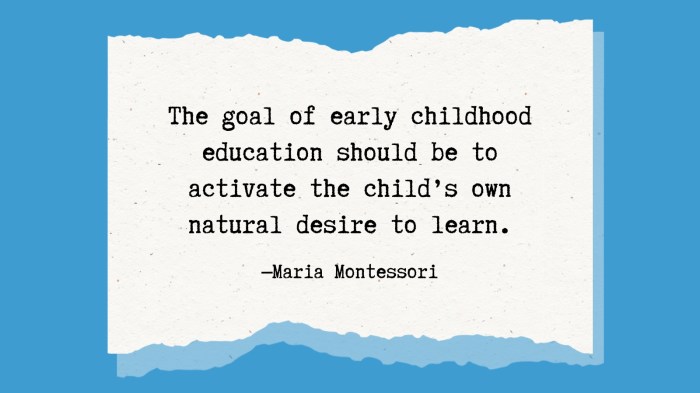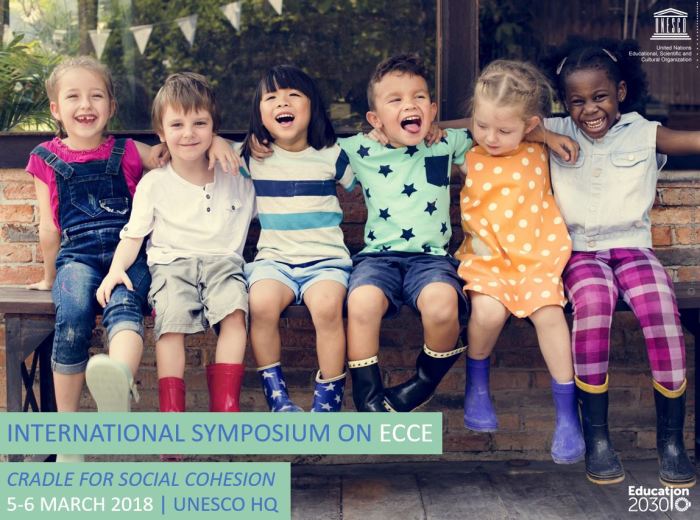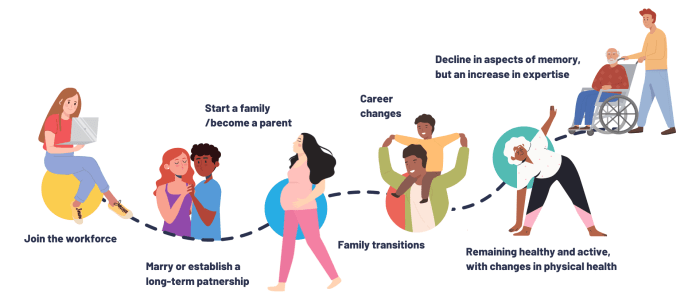Pendidikan anak usia dini, atau PAUD, merupakan fondasi penting bagi perkembangan anak. Dalam era globalisasi ini, kemampuan berbahasa Inggris menjadi semakin krusial. PAUD dalam bahasa Inggris memberikan kesempatan bagi anak-anak untuk belajar bahasa asing sejak usia dini, membuka peluang yang lebih luas di masa depan.
Artikel ini akan membahas secara komprehensif tentang PAUD dalam bahasa Inggris, mulai dari pengertian, tujuan, kurikulum, metode pembelajaran, hingga peran orang tua dan guru. Dengan pemahaman yang baik, kita dapat mendukung tumbuh kembang anak di usia dini agar mereka siap menghadapi tantangan global.
The Goals of Early Childhood Education (ECE) in English: Paud Dalam Bahasa Inggris

Early Childhood Education (ECE) plays a vital role in shaping young minds and preparing children for their future. It is a crucial stage of development, laying the foundation for academic, social, and emotional growth. Understanding the goals of ECE is essential for parents, educators, and policymakers alike.
Identifying the Primary Goals of ECE
The goals of ECE are multifaceted and encompass a wide range of developmental areas. These goals are often expressed in terms of the skills, knowledge, and attitudes that children are expected to acquire during this period. The primary goals of ECE can be summarized as follows:
- Cognitive Development: To foster children’s intellectual abilities, including problem-solving, critical thinking, and creativity.
- Social-Emotional Development: To promote children’s social skills, emotional regulation, and self-esteem.
- Language Development: To encourage children’s language skills, including vocabulary, grammar, and communication.
- Physical Development: To support children’s physical growth, motor skills, and overall health.
Benefits of ECE for Children
ECE provides numerous benefits for children, contributing to their overall well-being and future success. These benefits include:
- Enhanced Cognitive Skills: ECE programs provide opportunities for children to engage in activities that stimulate their brains, leading to improved cognitive abilities such as memory, attention, and problem-solving.
- Improved Social and Emotional Development: ECE fosters social interaction and teaches children how to manage their emotions, develop empathy, and build healthy relationships.
- Increased Language Proficiency: ECE programs expose children to a rich language environment, promoting vocabulary development, grammar comprehension, and communication skills.
- Improved Physical Health and Well-being: ECE programs emphasize physical activity and healthy eating habits, contributing to children’s physical health and overall well-being.
- Increased School Readiness: ECE programs prepare children for formal schooling by developing foundational skills such as literacy, numeracy, and social-emotional competence.
Goals of ECE in English and Corresponding Activities, Paud dalam bahasa inggris
| Goals of ECE | Example Activities |
|---|---|
| Cognitive Development | Puzzles, building blocks, sorting activities, storytelling, and dramatic play. |
| Social-Emotional Development | Group activities, role-playing, conflict resolution exercises, and social skills games. |
| Language Development | Storytelling, singing songs, rhyming games, and interactive reading. |
| Physical Development | Gross motor activities (running, jumping, climbing), fine motor activities (drawing, cutting, pasting), and outdoor play. |
Challenges of Early Childhood Education in English

Early Childhood Education (ECE) in English presents unique challenges, especially in countries where English is not the primary language. These challenges are crucial to address to ensure children’s holistic development and successful transition to primary education.
Language Barriers
A major hurdle is the language barrier. Children may struggle to understand and express themselves in English, which can hinder their learning and participation in classroom activities. This is particularly true for children who come from diverse linguistic backgrounds.
Lack of Qualified Teachers
Another challenge is the shortage of qualified English-speaking ECE teachers. Many countries lack sufficient trained teachers who are proficient in English and have the necessary pedagogical skills to effectively teach young learners.
Limited Resources
Access to quality English-language learning resources is often limited, especially in developing countries. This can include a lack of appropriate books, materials, and technology to support English language acquisition.
Cultural Differences
Cultural differences can also pose challenges. Teaching methods and approaches that are effective in one culture may not be as successful in another. It is important to consider cultural sensitivities and adapt teaching strategies accordingly.
Addressing the Challenges
Addressing these challenges requires a multifaceted approach involving collaboration between educators, policymakers, and communities.
Teacher Training and Development
Investing in teacher training and development is crucial. This includes providing teachers with specialized training in teaching English as a second language (ESL) and equipping them with the skills to create inclusive and engaging learning environments.
- Developing specialized ESL teacher training programs tailored to ECE settings.
- Providing ongoing professional development opportunities for ECE teachers to enhance their English language teaching skills.
- Encouraging collaboration between experienced ESL teachers and ECE teachers to share best practices.
Curriculum Development and Resources
Developing a comprehensive and culturally appropriate English language curriculum for ECE is essential. This curriculum should be aligned with the developmental needs of young learners and incorporate a variety of engaging learning activities.
- Creating age-appropriate English language learning materials that cater to diverse learning styles and cultural backgrounds.
- Developing online resources and interactive platforms to support English language acquisition.
- Promoting the use of technology in ECE to enhance language learning and engagement.
Parental Involvement
Involving parents in their children’s language development is crucial. This can be achieved through workshops, home-based learning activities, and communication channels that bridge the gap between the home and the classroom.
- Organizing workshops for parents on how to support their children’s English language development at home.
- Providing parents with resources and materials to encourage language learning in everyday activities.
- Establishing communication channels between teachers and parents to discuss children’s progress and provide guidance.
Community Collaboration
Engaging with the community is vital to create a supportive environment for English language learning. This can involve partnering with local organizations, businesses, and community members to provide opportunities for children to interact with English speakers.
- Establishing partnerships with local libraries, museums, and cultural centers to offer English language learning programs and activities.
- Organizing community events where children can interact with English speakers in a fun and engaging setting.
- Encouraging community members to volunteer their time to support English language learning initiatives.
Research on Early Childhood Education in English
Research on Early Childhood Education (ECE) in English plays a vital role in understanding the developmental needs of young children and informing effective educational practices. It contributes to a growing body of knowledge that supports the development of high-quality ECE programs worldwide.
Relevant Research Topics
Numerous research topics within ECE in English are crucial for improving the quality of education and supporting children’s development. Some prominent areas include:
- Early Literacy Development: Studies exploring the relationship between early literacy skills and later academic success, effective strategies for fostering literacy in young learners, and the impact of diverse language backgrounds on literacy acquisition.
- Social-Emotional Learning (SEL): Research investigating the importance of SEL in early childhood, effective SEL programs and interventions, and the impact of SEL on children’s social and emotional well-being.
- Play-Based Learning: Studies examining the role of play in early childhood development, the benefits of play-based learning environments, and the connection between play and cognitive, social, and emotional growth.
- Inclusive ECE: Research exploring the inclusion of children with disabilities in ECE settings, effective strategies for supporting diverse learners, and the development of inclusive teaching practices.
- Teacher Education and Professional Development: Studies examining the preparation and ongoing professional development of ECE teachers, effective training models, and the impact of teacher quality on children’s learning outcomes.
Benefits of Research in ECE
Research on ECE provides valuable insights that can be applied to improve the quality of early childhood programs and enhance the well-being of young children. Key benefits include:
- Evidence-Based Practices: Research findings inform the development of evidence-based practices that are supported by empirical data and proven to be effective.
- Improved Curriculum and Instruction: Research helps educators design and implement age-appropriate curricula and instructional strategies that align with children’s developmental needs.
- Enhanced Teacher Skills and Knowledge: Research findings provide valuable information and resources for teacher training and professional development, enhancing their skills and knowledge.
- Advocacy and Policy Development: Research provides evidence to support advocacy efforts and inform policy decisions related to ECE, ensuring that young children have access to high-quality educational experiences.
Research Questions in ECE
Research questions are essential for guiding research studies and exploring specific areas of interest within ECE. Examples of research questions in ECE include:
- What are the most effective strategies for promoting early literacy development in children from diverse language backgrounds?
- How can ECE programs effectively integrate SEL into their curriculum and daily routines?
- What are the long-term impacts of play-based learning on children’s cognitive, social, and emotional development?
- What are the best practices for supporting the inclusion of children with disabilities in ECE settings?
- What are the most effective models for preparing and supporting ECE teachers in their professional development?
Penutupan

PAUD dalam bahasa Inggris menawarkan banyak manfaat bagi anak-anak, baik dalam pengembangan bahasa maupun kemampuan kognitif dan sosial-emosional. Dengan dukungan orang tua dan guru yang tepat, anak-anak dapat belajar dengan menyenangkan dan meraih potensi maksimal mereka. Mari kita bersama-sama menciptakan generasi penerus yang siap bersaing di kancah global.





